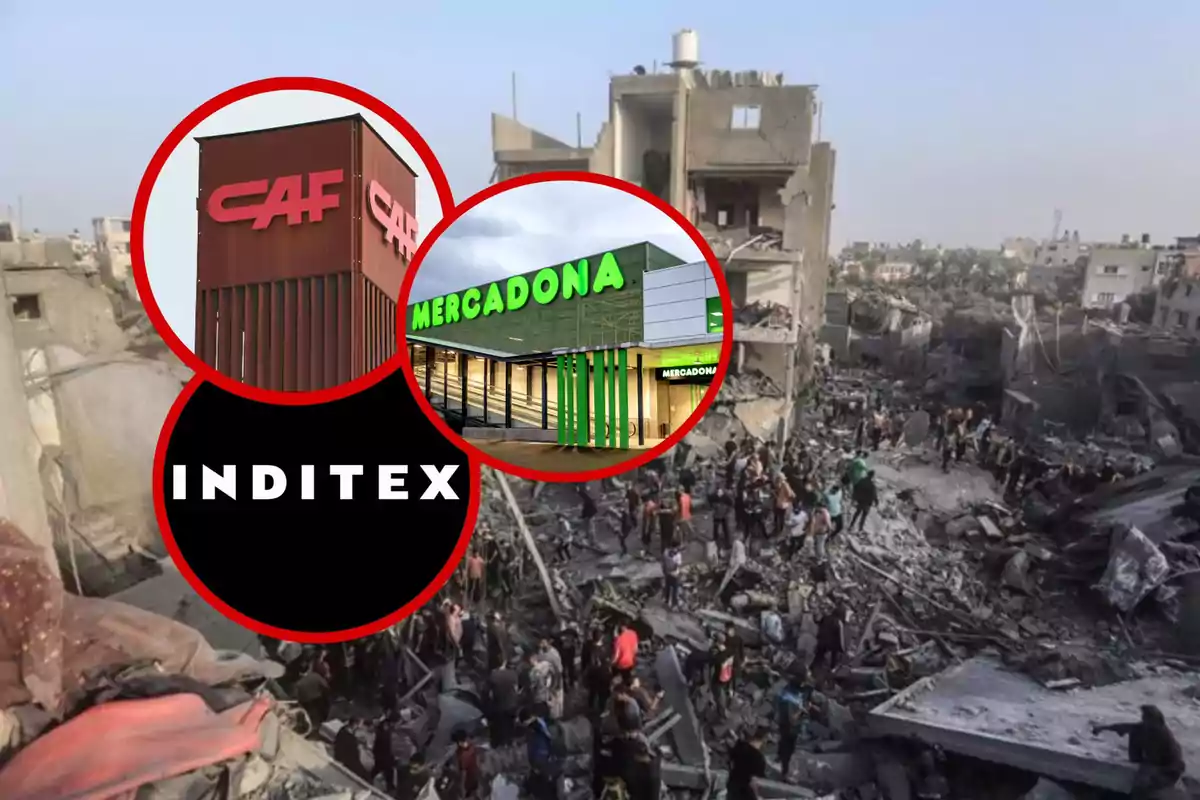
Major Spanish companies with ties to Israel: these are their businesses
Mercadona sells Israeli products, Inditex keeps stores in Israel, and Grupo CAF is a partner of the Jerusalem tram
The genocide perpetrated by Israel in the Gaza Strip, where more than 50,000 people (15,000 of them children) have been killed, remains one of the most concerning international issues. This Wednesday, Israeli Prime Minister Benjamin Netanyahu confirmed the death of Hamas's leader in Gaza, Mohamed Sinwar. He is one of the most wanted leaders of the Islamist group by Israel.
This entire war situation has also caused a debate about the advisability of trusting some companies that keep commercial ties with Israel.
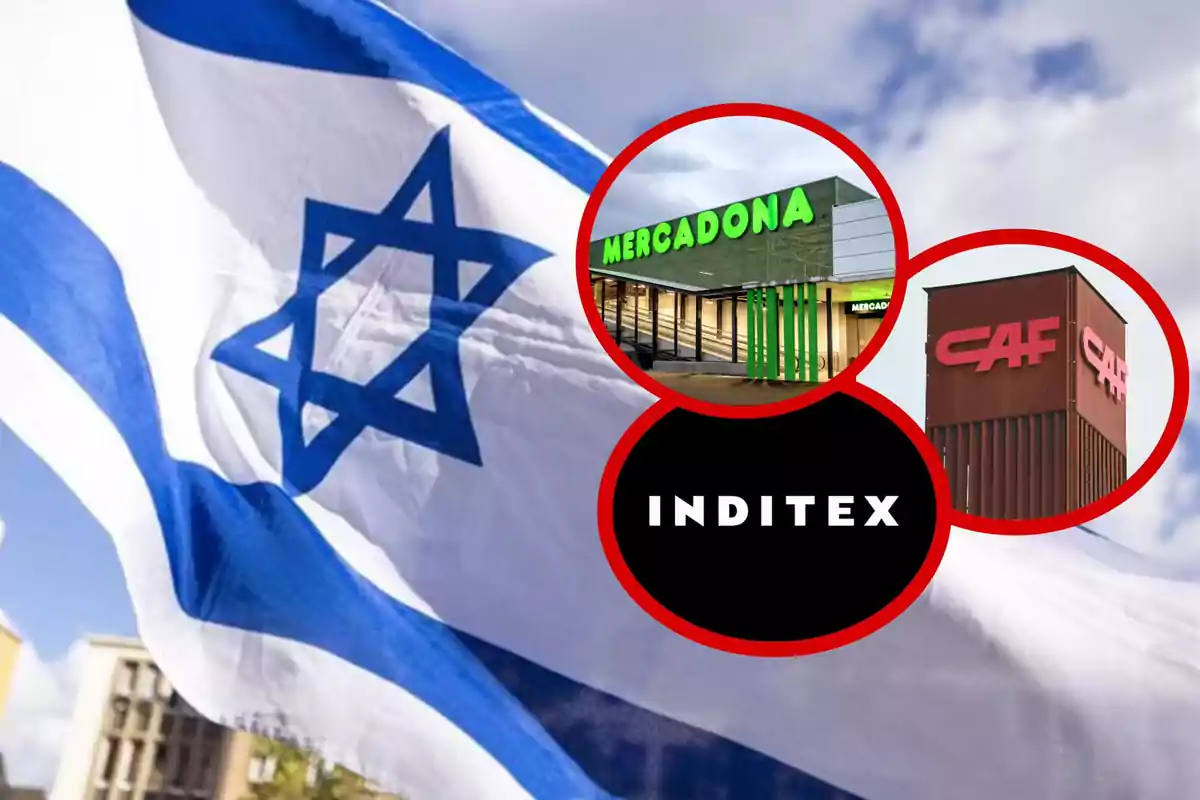
Even so, various human rights organizations, as well as boycott, divestment, and sanctions (BDS) initiatives, have pointed out companies that keep links with Israel, especially those that operate or invest in occupied Palestinian territories.
In Spain, several companies have come under scrutiny for their commercial ties with Israeli entities. Among the most mentioned are Mercadona, Grupo CAF, and Inditex.
Mercadona and its products of Israeli origin
Mercadona, the largest supermarket chain in Spain and owned by businessman Juan Roig, has been singled out for selling products manufactured in Israel. One of the most well-known cases is the sale of private label tampons and pads produced by the Israeli company Albaad Massuot Yitzhak Ltd. This is one of the largest producers of feminine hygiene products in Israel.
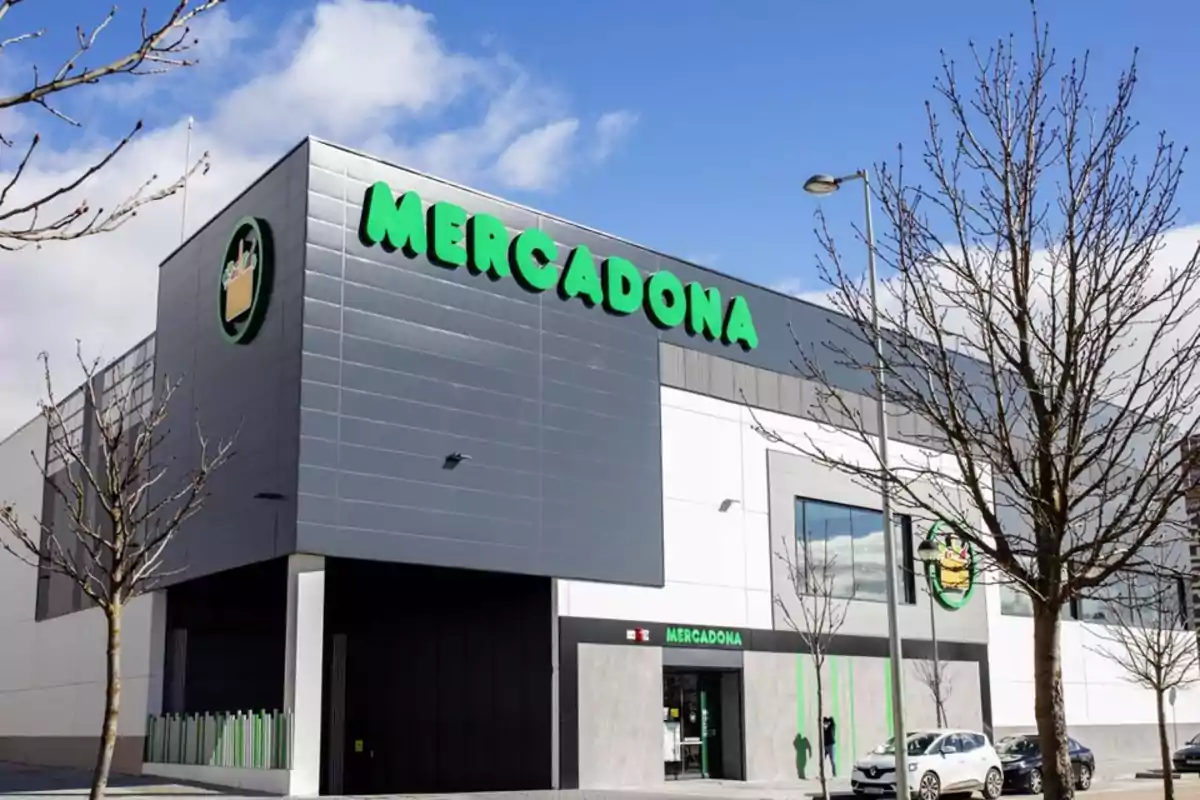
In addition, some sources have denounced the sale of agricultural products, such as potatoes, also of Israeli origin. The commercialization of these products has become a point of conflict for consumers who do not want to buy goods produced in Israel. Especially if they come from occupied areas, since they believe it means contributing to supporting an economy that benefits from the conflict and the occupation.
Although Mercadona has not made official statements on the matter, pro-Palestinian organizations have urged the chain to review its supply chain. They have also called for an end to commercial relations with companies that operate within the framework of the Israeli occupation.
CAF and its involvement in the Jerusalem transportation system
Another significant case is that of Grupo CAF (Construcciones y Auxiliar de Ferrocarriles). The giant based in Beasain (Gipuzkoa) has been harshly criticized for its participation in the Jerusalem tram project, the Jerusalem Light Rail. This transportation system connects West Jerusalem with Israeli settlements in the east of the city. This area has been occupied since 1967 and its legal status is the subject of international dispute.
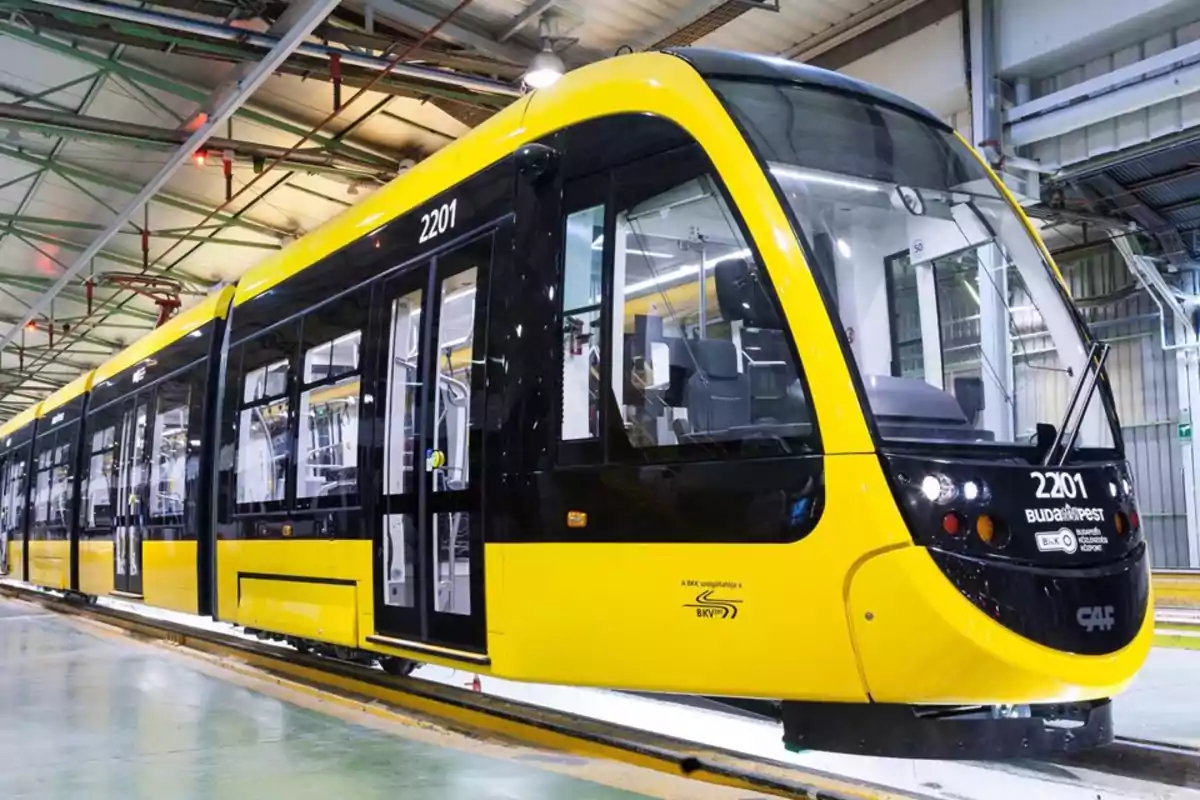
The railway company CAF, together with the Israeli Shapir Engineering and Industry, was awarded a contract in 2019 to expand and operate several tram lines. Organizations such as the United Nations have stated that these settlements are illegal under international law, and that infrastructures like the tram consolidate a de facto annexation of the occupied Palestinian territory.
Despite pressure from human rights organizations, unions, and political parties, CAF has kept its participation in the project. This fact has motivated boycott campaigns and protests at its offices.
Inditex is also tainted by Israel. The Galician textile company has its own stores and franchises in Israel.
Multinationals with significant presence in Israel
In addition to Spanish companies, many multinational corporations with a strong presence in the Spanish market also keep close commercial relations with Israel. Some of them have even been included in lists drawn up by international organizations for their connection with activities in occupied territories.
Among them is Nestlé. The Swiss multinational owns about 50% of Osem Investments, one of the largest food companies in Israel. Another is Danone, which, through agreements with local companies, has distributed its products in Israel for decades.
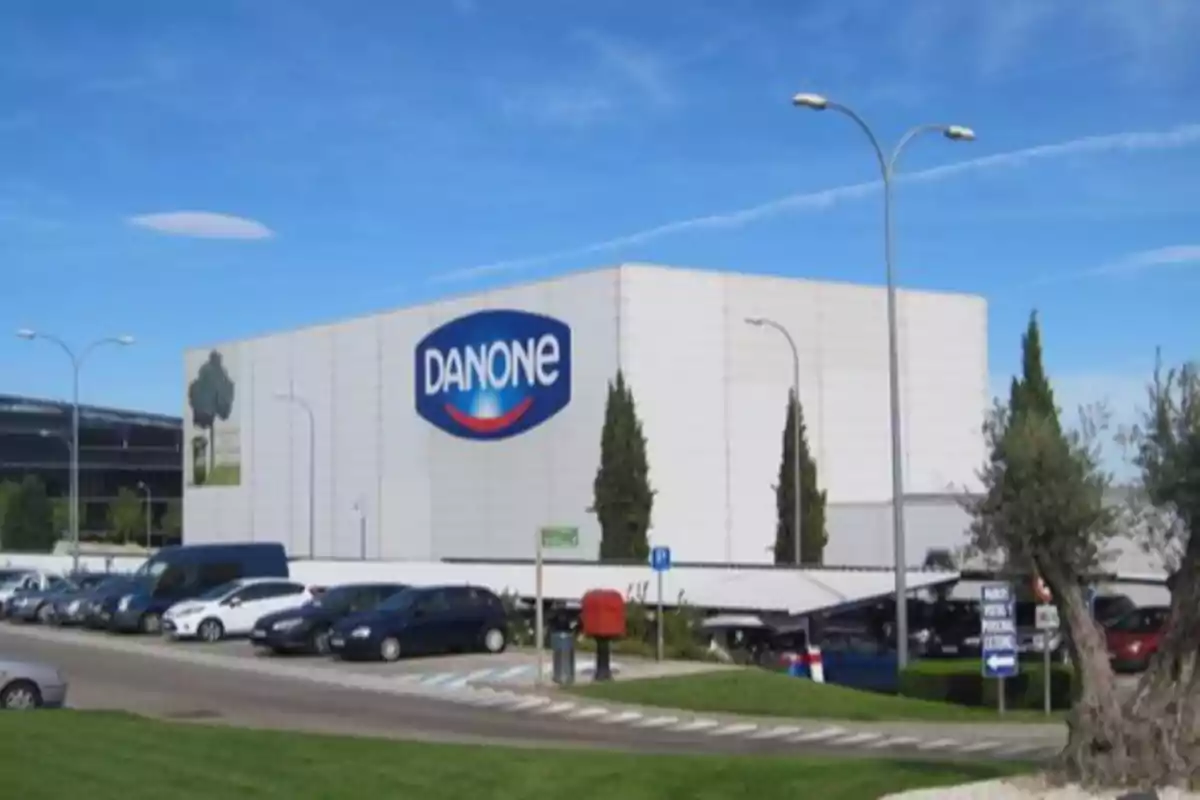
The beverage sector company Coca-Cola has a bottling plant in Bnei Brak, Israel, and has been singled out for its donations to Israeli initiatives. Meanwhile, HP has supplied IT infrastructure for the Palestinian population control system and has been criticized for facilitating digital apartheid.
Meanwhile, the cosmetics brand L'Oréal owns a plant in Israel and in February opened a large store in the country. It also carries out joint marketing operations with local companies.
On the other hand, the French food chain Carrefour recently expanded in Israel through agreements with local distribution companies.
Consumption and politics
The relations between large Spanish companies and Israel illustrate how the globalized economy often unfolds regardless of geopolitical conflicts or ethical principles. However, it can also show how consumers and civil society can exert pressure to change those dynamics.
The debate about these relations goes beyond the legal framework. It also involves an ethical dimension regarding the role that companies should assume in the face of prolonged conflicts and human rights violations.
As the pro-Palestinian BDS movement and other similar campaigns grow, companies and consumers face decisions that are no longer just economic, but deeply political.
More posts: